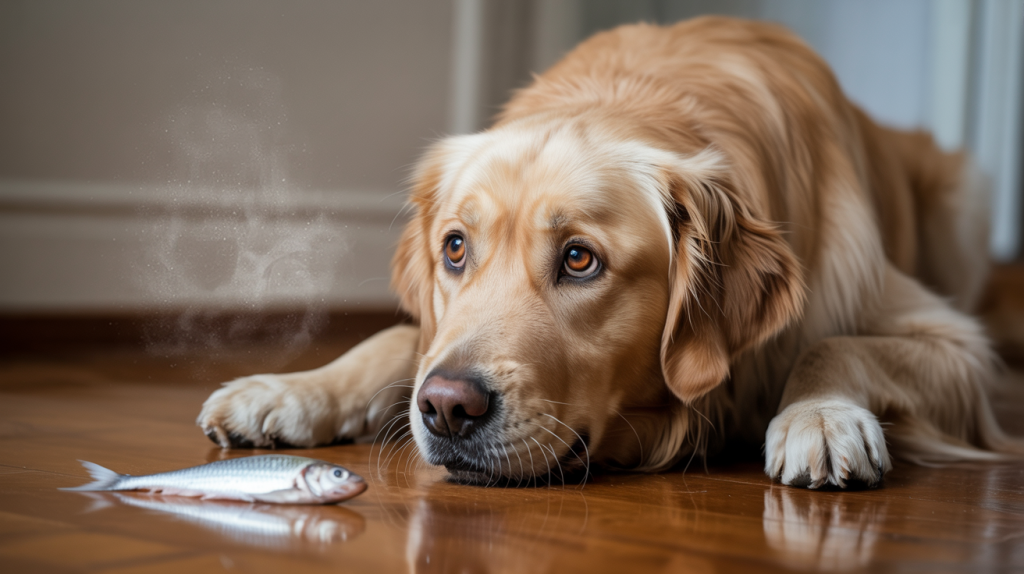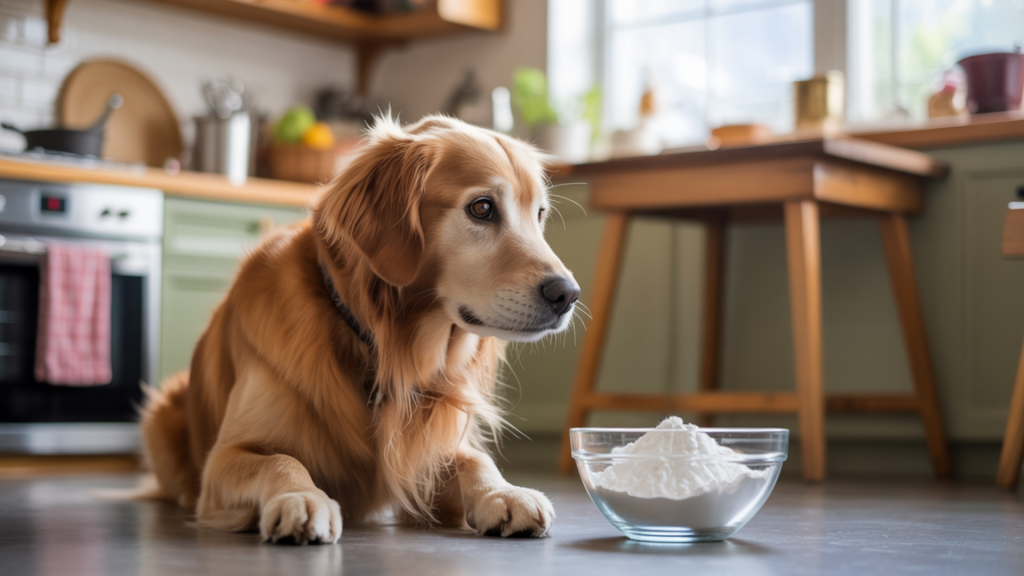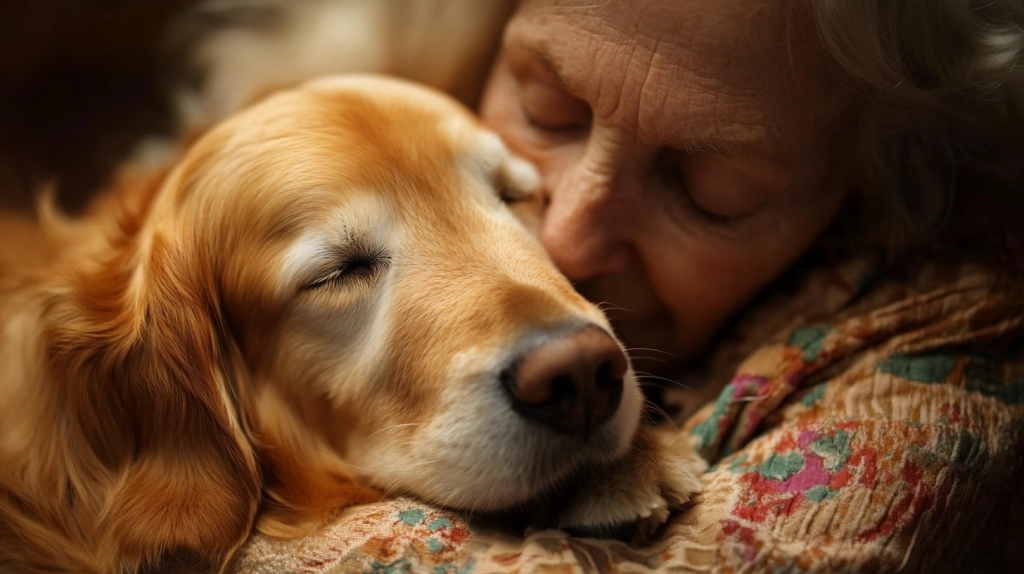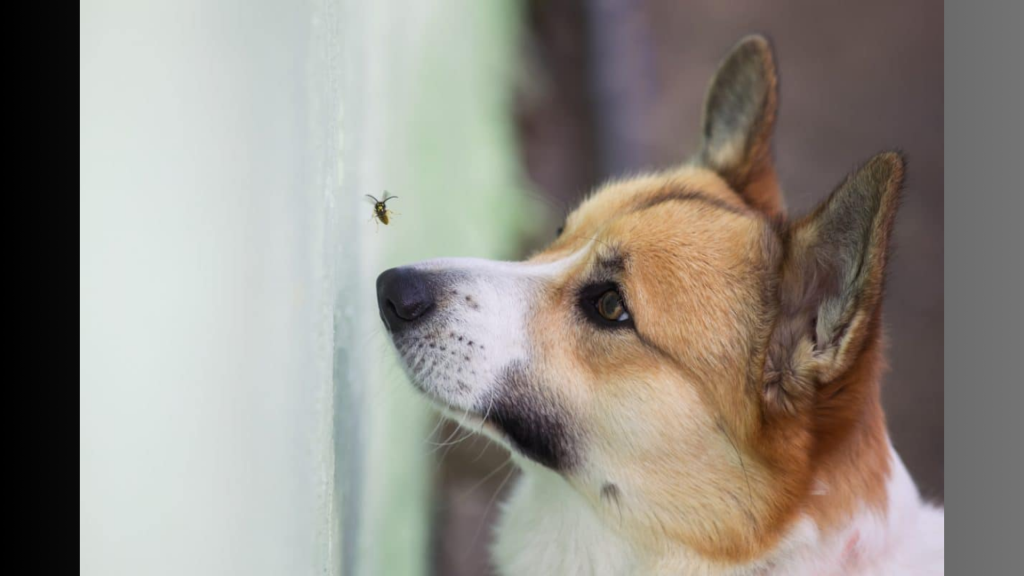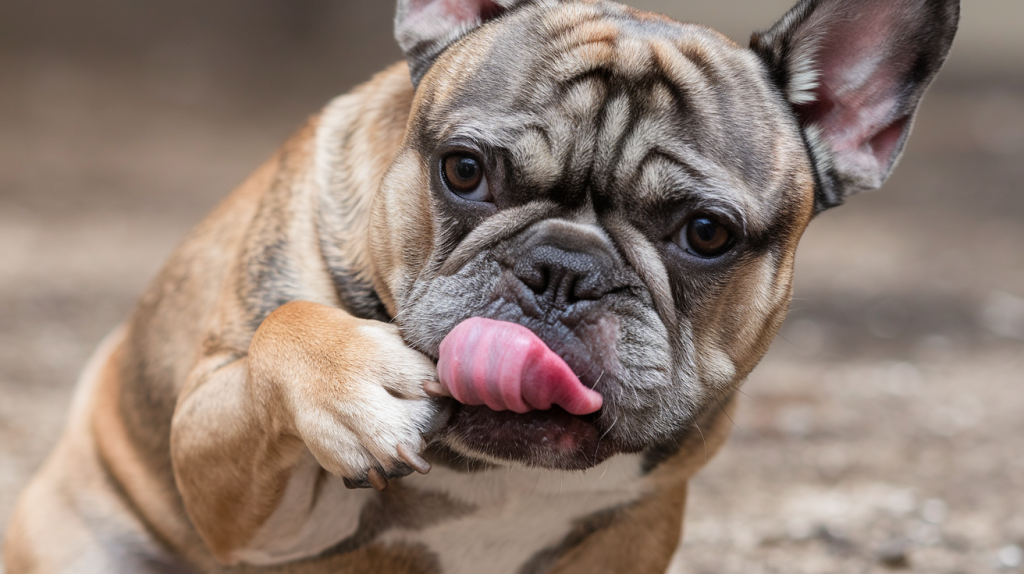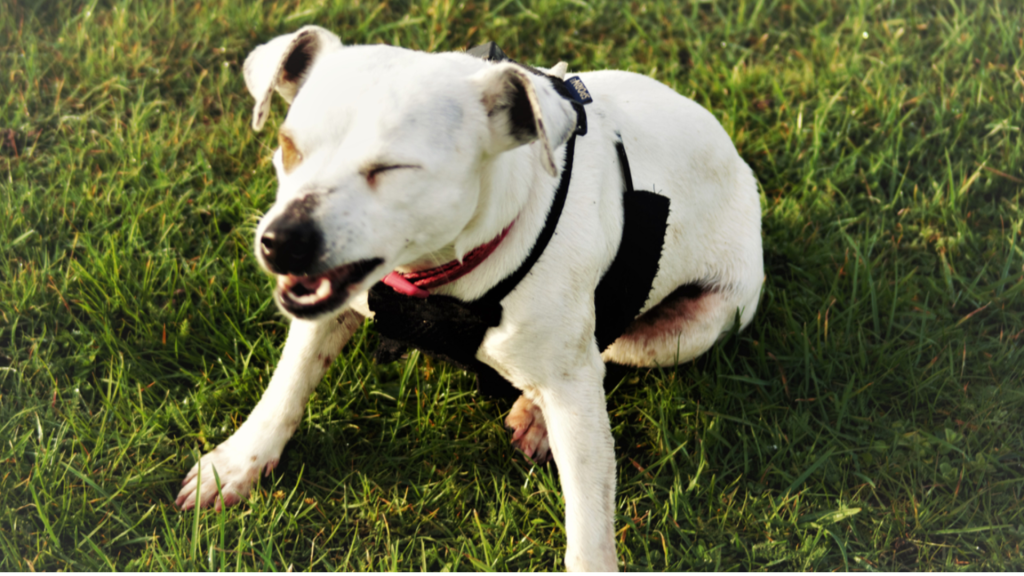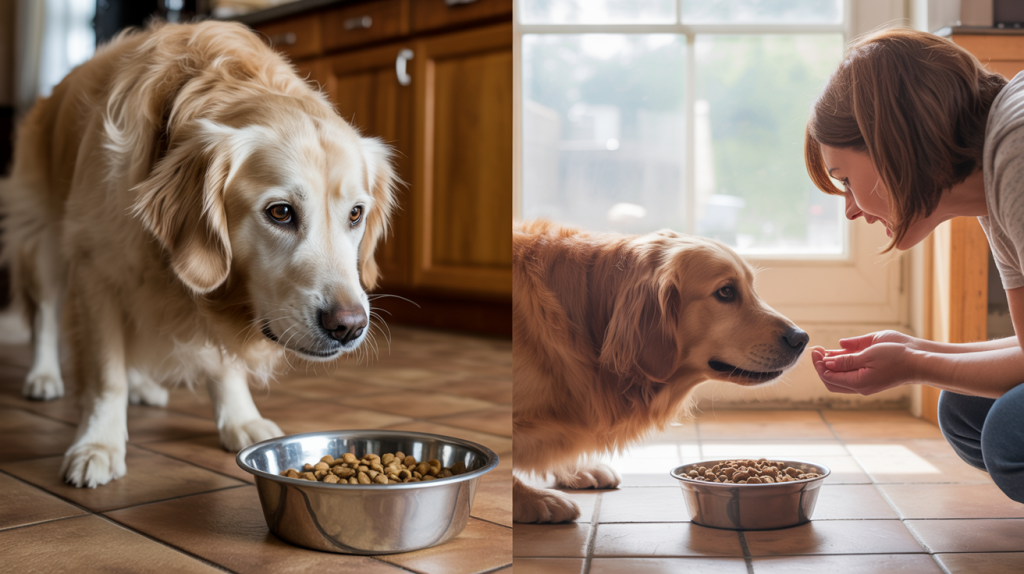Here’s what most people don’t realize: that fishy smell usually points to a specific health issue. It’s not just poor hygiene or something your dog rolled in outside.
The scent often comes from infected anal glands, skin problems, or dental issues.
This blog explains exactly why does my dog smell like fish and what pet owners can do about it. Readers will learn to identify the source, understand when it’s serious, and find effective solutions to get their furry friend smelling fresh again.
Why Do Dogs Smell Like Fish?
Dogs smell like fish mainly because of their anal glands. These are two small sacs near their bottom that make a fishy-smelling liquid. When these glands get blocked or full, your dog will smell like fish.
Other causes of a fishy smell in dogs can include bad breath due to dirty teeth, skin infections, ear infections, or poor hygiene.
However, the most common reason is related to the anal glands. These glands can become full or impacted, releasing a strong, fishy odor. Fortunately, a veterinarian can resolve this issue by safely expressing the glands.
The Top Reason: Anal Gland Troubles
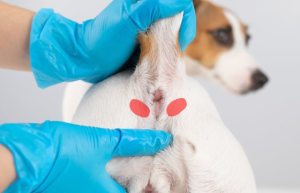
Anal glands are the main reason dogs smell like fish. These are two small sacs near your dog’s bottom that make fishy-smelling liquid.
When these glands get blocked or full, the smelly liquid can’t come out. It stays trapped inside and creates that strong fish odor.
Your dog should naturally empty these glands when it poops, but sometimes, this doesn’t happen. The liquid builds up and makes your dog smell bad.
Signs of anal gland problems:
- Dog drags its bottom on the floor
- Licks’ rear end a lot
- Strong fishy smell
- Acts uncomfortable
A vet can empty these glands safely. This fixes the smell problem and makes your dog comfortable again. This is very common in dogs. Most pet dogs have this issue at some point.
Surprising Medical Causes Behind That Fishy Smell
Think anal glands are the only reason your dog smells like fish? Think again! Here are some shocking medical causes you never knew about.
Your Dog’s Kidneys Might Be Failing
Sick kidneys can’t filter toxins properly. These toxins leak out through your dog’s skin, creating that fishy stench. If your dog drinks tons of water and pees everywhere, their kidneys might be in trouble.
That Rotten Mouth Is the Real Culprit
Your dog’s breath could knock you over! Infected gums and rotting teeth smell exactly like old fish. Check their mouth – you might find the source of that awful odor hiding behind those cute doggy lips.
Hidden Skin Infections Are Brewing
Bacteria love warm, moist spots on your dog’s body. Between their toes, under their arms, and in skin folds – these areas can harbor nasty infections that reek like fish.
Their Ears Are Secretly Gross
Peek inside your dog’s ears. See that dark, gunky stuff? That’s bacteria and yeast having a party. And guess what they smell like? You got it – fish!
Pee Problems Create Stinky Situations
Urinary tract infections make your dog’s pee smell horrible. If they’re having accidents indoors or straining to go, their bladder might be infected.
The Liver Is Crying for Help
A sick liver can’t clean your dog’s blood properly. Toxins build up and escape through their skin as fishy odors. Yellow eyes or gums are dead giveaways.
Don’t Ignore These Warning Signs!
If baths don’t fix the smell, something serious might be wrong. Your vet can run tests to find the real problem. Trust me – your nose will thank you later!
How Diet and Digestion Play a Role in Odor
What your dog eats can change how they smell. Some dog foods, especially those made with fish, can give your dog a stronger, fishy smell. This doesn’t always mean something is wrong; it could just be the food.
Poor digestion can also cause odor. If your dog has trouble digesting certain ingredients, it might lead to gas, an upset stomach, or body odor. Some dogs may also get smelly breath or skin from food allergies or low-quality ingredients.
Feeding your dog a healthy, balanced diet with good-quality food can help reduce bad smells.
If you notice a strong or unusual odor after changing your dog’s food, talk to your vet. It might be time to adjust their diet for better digestion and a fresher-smelling pup.
Gender and Breed Considerations
| Factor | Details |
|---|---|
| Gender | Female pets may be more prone to certain infections or hormonal changes that affect odor. |
| Breed (Dogs) | Some breeds like Bulldogs, Beagles, and Cocker Spaniels are more likely to have anal gland issues. |
| Why It Matters | Knowing your pet’s breed and gender helps spot health risks and manage unusual odors early. |
At-Home Remedies and Preventative Tips
If your dog smells like fish, there are a few things you can try at home to help:
- Regular Baths: Give your dog regular baths using a gentle dog shampoo. This helps remove dirt, oils, and any odor on their skin and fur. Be sure to rinse well and dry them completely.
- Wipe and Clean: Use pet-safe wipes to gently clean around your dog’s rear end. This can help keep the area fresh and prevent smells from leftover messes.
- Healthy Diet: Feed your dog high-quality food to support good digestion. A healthy diet can reduce smelly gas, bad breath, and body odor. Avoid low-quality or overly fishy foods if they cause strong smells.
- Brush Their Teeth: Bad breath can also smell fishy. Brush your dog’s teeth several times a week with dog-safe toothpaste to keep their mouth clean.
- Keep Ears Clean: Check your dog’s ears for wax or signs of infection. Wipe them gently with a vet-approved ear cleaner if needed.
- Watch for Gland Issues: If the smell is coming from their rear and keeps coming back, their anal glands might need to be emptied. A groomer or vet can do this safely, but you can learn to do it at home if your vet shows you how.
- Regular Vet Visits: A check-up once or twice a year helps catch problems early. Your vet can also help with smells caused by infections or other health issues.
When to Contact Your Vet
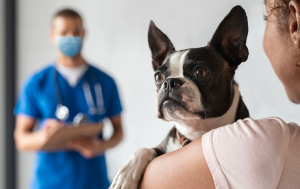
Sometimes, a fishy smell is more than just a grooming issue; it could be a sign of a health problem. You should contact your vet if:
- The smell keeps coming back even after cleaning your dog.
- Your dog is scooting, licking their rear, or seems uncomfortable.
- There’s swelling, redness, or discharge near their back end.
- Your dog’s breath, ears, or skin smells bad, even after regular cleaning.
- Your dog has trouble peeing or is going more often than usual.
- You notice changes in appetite, energy, or behavior along with the odor.
A strong or sudden fishy smell can mean your dog has an infection or impacted anal glands. Your vet can safely check your dog, treat any issues, and give you tips to prevent it from happening again.
Don’t wait too long; early treatment helps your dog feel better faster.
Myth vs. Reality: Why Does My Dog Smell Like Fish
Myth 1: It’s Just Dog Breath or Dirty Fur
Reality: That strong fishy smell usually isn’t from the mouth or coat—it often comes from full or impacted anal glands, which can leak a smelly fluid.
Myth 2: A Good Bath Will Fix It
Reality: While a bath can help temporarily, if the odor is due to anal gland issues, infection, or internal problems, a vet visit is needed. Washing won’t solve the root cause.
Myth 3: It’s Just a Quirk of Certain Breeds
Reality: Any breed can develop a fishy odor. It’s not about genetics but often about health, diet, or anal gland function.
Myth 4: It’s From Their Fish-Based Dog Food
Reality: Fishy-smelling food rarely causes your dog to smell fishy. Diet can influence odor, but the smell from anal gland issues is far stronger and more pungent than any kibble.
Myth 5: It’s Harmless and Nothing to Worry About
Reality: Persistent fishy odor can be a sign of anal gland infection, impaction, or other health issues. It’s a signal that your pup may need veterinary care.
The Bottom Line
Fishy odors signal health problems that need attention. Most cases involve anal glands, skin infections, or dental issues. These conditions are treatable when caught early.
Don’t wait for the smell to disappear on its own. It won’t.
Schedule a vet visit if the odor persists more than 24 hours or want to know why does my dog smell like fish. Start regular dental care and grooming routines today.
Need immediate help? Call your vet’s office for guidance on temporary relief methods while you wait for your appointment.


